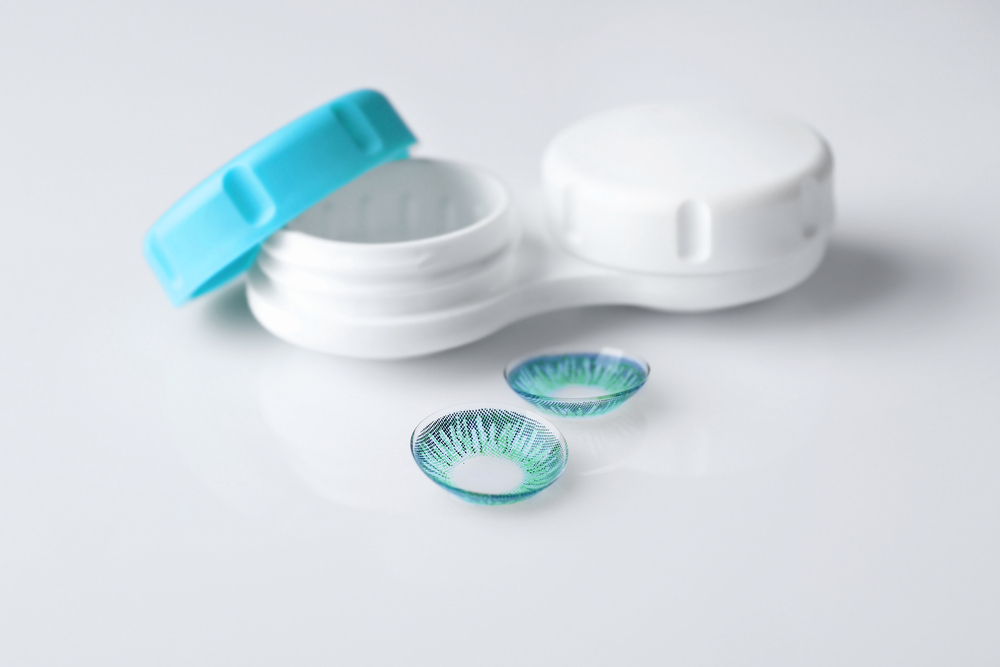Inching closer to the screen, squinting at traffic signals, or recognising people more by their voices than their faces in the distance, if these describe you, there’s a good chance you’re grappling with near or farsightedness. Thus arises the question: Do you gravitate towards contact lenses or eyeglasses? A matter of personal preference, lifestyle, comfort, convenience, and aesthetics, this choice often leaves people uncertain. That’s where our comprehensive guide swoops in to help you scrutinise these options, weigh the pros and cons, and make an informed decision.
Deciphering the world of optics can be challenging. It goes beyond the simplicity of correcting your vision to factors like maintenance, durability, cost-efficiency, and one cannot ignore the style statement glasses can make or the simplicity and inconspicuousness that contacts offer. The need is to dig deeper, consider all possible aspects, and discover what suits us best.
In this post, we take you on a guided tour of what contact lenses and eyeglasses entail, their pros and cons, their aesthetic and practical impacts, and finally, we try to answer the quintessential question of which is better. So, hang on and dive with us in this extensive comparison.
Why Choose Contact Lenses?
Contact lenses are excellent for people leading an active lifestyle. They provide a natural field of view, uninhibited by frame edges. Offering clean vision correction, contact lenses won’t clash with your outfit, fog up in cold weather, or get spotted by rain. Plus, they’re great for people who feel glasses affect their facial aesthetics.
Contact lenses can also come with therapeutic benefits. For instance, orthokeratology lenses are capable of reshaping the corneal curvature, helping curb certain kinds of myopia temporarily. On the downside, contacts require meticulous hygiene practices, can induce eye dryness, and might be uncomfortable for sensitive eyes.
When To Opt For Eyeglasses?
A low-maintenance, convenient alternative to contacts, eyeglasses, come to your rescue if you have a busy schedule or are weary of touching your eyes. Eyeglasses are typically cheaper than contacts in the long run as they don’t need frequent replacing. New-age lenses also guard your eyes from harmful UV rays.
With the diverse array of frame styles available, you can experiment with your look. However, glasses do come with disadvantages. They can distort peripheral vision, can fog up with temperature changes, and sometimes press down on your nose, causing discomfort.
Who Suits What?
While personal convenience and aesthetics remain predominant deciding factors, the type of vision problem also influences the choice. For instance, eyeglasses are usually suggested for individuals with dry or sensitive eyes, whereas contacts are recommended for those with irregular cornea conditions.
Pros and Cons: Contact lenses vs. Eyeglasses
While both glasses and contacts correct your vision efficiently, each comes with its set of benefits and drawbacks.
Making a Style Statement
Today, corrective eyewear transcends its utilitarian purpose to be a part of your personality and style statement. The weight of this factor often overrides others when choosing between contacts and glasses.
Cost-efficient options
Contrary to popular belief, both glasses and contacts come in economical ranges. They also have luxury offerings. Your choice here would ultimately marry your budget constraints with the cost of the product’s life cycle.
Conclusion: So, which is better?
The contact lenses versus eyeglasses debate doesn’t have a one-size-fits-all winner. Both are designed to improve your vision, and the best choice boils down to your personal requirements, lifestyle, comfort, budget, and eye health.
A vital takeaway is that comfort trumps style. It’s crucial to choose a solution that not only corrects your vision but also feels good to wear and use. Remember, your vision is precious, and anything you choose should primarily aim to improve and protect it, and secondly be stylish and convenient.
In conclusion, keep an open conversation with your eye doctor. Self-diagnosis or trials based on popular netizen advice can be harmful. Whether you choose contacts, eyeglasses, or an alternating combination of both, let it be a choice that serves you well today, tomorrow, and the many years to come.


